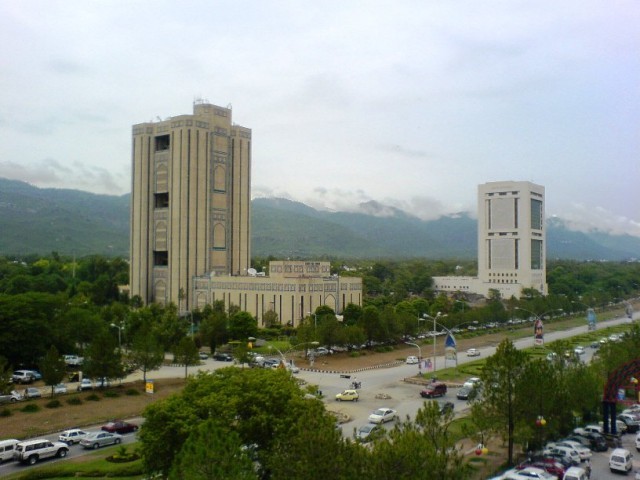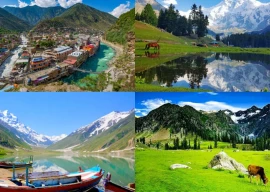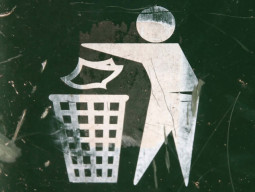
The top court also directed the relevant authorities to write to the federal government for releasing the funds required to build sewerage treatment plants in the city.
The directions came as a two-member bench of the Supreme Court of Pakistan, comprising Justice Ijazul Ahsan and Justice Umar Atta Bandial, heard a suo moto case on illegal constructions in Bani Gala and pollution in the Rawal Dam Lake.
During the hearing, a counsel for the Capital Development Authority (CDA) told the court that most of the constructions in the area, around 75 per cent were irregular or illegal and stand to be demolished under the law.
At this, Justice Bandial observed that the civic body should do whatever it wanted as long as it was in accordance with law.
Justice Ahsan lamented that no progress had been made in either taking action against illegal structures in Bani Gala or on regularizing them.
Justice Bandial remarked that the contention of amending the Master Plan of the federal capital appears to have been an excuse to get more time since the CDA has not yet prepared a framework to regularise the houses built in Bani Gala.
The court gave CDA a week to present the details.
Rawal lake pollution
Justice Ahsan also asked about the construction of water treatment plants for the Rawal Dam.
During Thursday’s hearing, the Pakistan Environment Protection Agency (Pak-EPA) director general appeared before the bench and told them that no sewerage treatment plants had been built which would treat the water flowing into the lake from two major contributors, Murree to the northeast via the Korang River and the Bari Imam Shrine to the north via the Jinnah Stream.
The Pak-EPA officer further elaborated that from one side, effluents from poultry farms in Murree flow untreated down the Korang River and into the lake. On the other hand, waste from the Bari Imam Shrine and other settlements of Islamabad flow untreated into the lake.
To make matters worse, the Pak-EPA official said that people continue the illegal practice of riding on boats and other flotation devices in the lake despite the fact that water from it was used for drinking purposes downriver.
Pointing to the incident where dead fish rose to the surface of the lake last year, the Pak-EPA chief stated that water of the Rawal Lake lacks sufficient oxygen. This, coupled with the pollution and effluents dumped into the lake, could cause a number of diseases in those who consume the lake’s waters.
Justice Ahsan remarked that even though three departments were looking after the lake and the dam, not one of them was ready to take responsibility for it. He added that Punjab and the federal government keep passing the buck to each other all the while the environment keeps getting damaged awaiting approval from departments.
Justice Bandial observed that Dr Tariq Fazal Chaudhry, the former federal minister for the now-defunct Capital Administration and Development Division (CADD), had informed them about the government’s plans to set up water treatment projects worth Rs4 billion. However, the judge remarked that it appears that the project has been shelved.
“We need to see progress on the matter,” Justice Bandiyal remarked, adding that funds can also come from those who stand to benefit from the project and those who are responsible for causing the pollution.
An official of finance ministry told the bench that treatment plants will be installed at Bari Imam and at Shahdara. Moreover, the official said that they had allocated Rs3.5 billion to set up the four sewerage treatment plants while a further Rs144 million will be required on an annual basis to run them.
The finance ministry official, however, told the court that no money for the project had been allocated in the current fiscal year.
The court noted that the Pak-EPA report on the matter calls mentions some immediate remedial steps including the installation of the treatment plants. It directed that the relevant departments request the government to release the requisite funds while a procedure to raise revenue to pay for the operation of the plants should also be devised apart from ascertaining five to ten acres of land to dispose of the waste.
The case was adjourned until the first week of January 2019.
Published in The Express Tribune, December 21st, 2018.




1732745394-0/Diddy-(4)1732745394-0-165x106.webp)












COMMENTS
Comments are moderated and generally will be posted if they are on-topic and not abusive.
For more information, please see our Comments FAQ